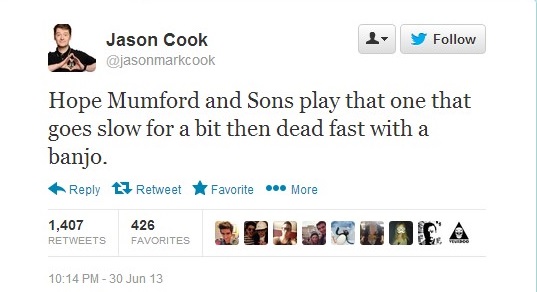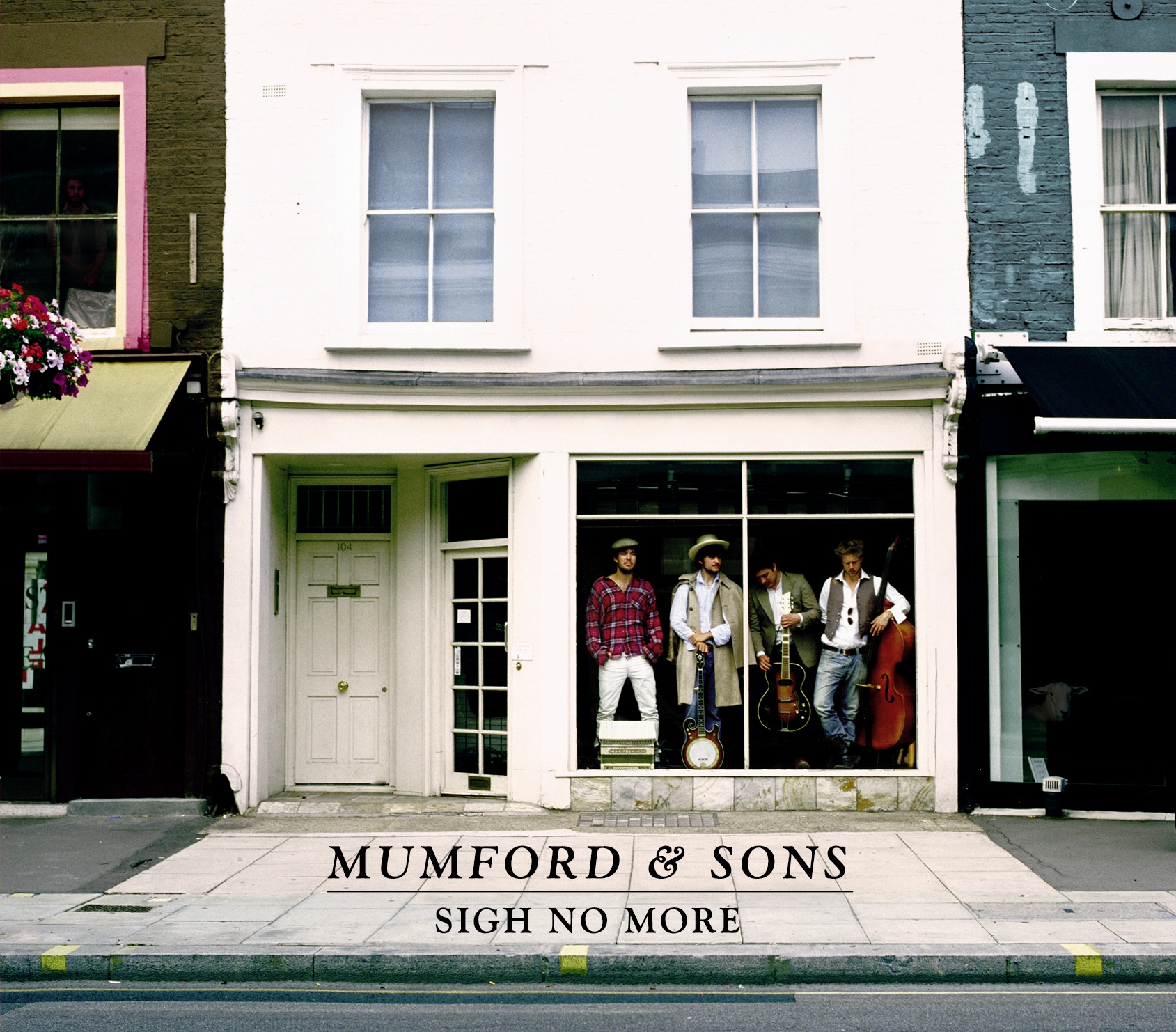Mumford & Sons: Giving Coldplay a Run for Their Money in the Hate Stakes
There’s a thin line between love and hate, especially in music, and especially in rock ‘n’ roll.
In many circles, if you’re seen as underground or uncommercial, this somehow gives you more credibility, as if you have to pass through some kind of force-field that allows your music to be credible. Some bands can manage to have commercial and critical acclaim and credibility all at the same time, but there aren’t many, especially when you reach the upper echelons of success.
It is very fashionable (not to mention snobby) for a commercially successful band to be torn to shreds for engaging an audience on a giant level. Back at the turn of the millennium (and still going strong) it was Coldplay, and now Mumford and Sons are the dartboards favourite pin up. Check out awesome music website The Quietus’ hilarious review of Mumford and Sons debut album Babel to witness the full extent of the hatred that Mumford and Sons receive in some circles.

Mumford and Sons recently headlined the final night of the Glastonbury festival with their brand of Irish-tinged folk-pop, and for every second that passed of the gig, there were thousands of tweets coming through either defending the band (why would they need defending?) or tearing them to shred for either being a) successful (should they apologise?) b) insincere (how can you tell?) or c) Bland (which is debatable and depending purely on the taste of the audience).
As always with bandwagons, they are extremely easy to jump on to, and it is quite fun to rip a successful band to shreds with a group of friends or likeminded people. Coldplay (and more specifically, Chris Martin) were fun to rip into because everybody was doing it and because the band are the complete antithesis of what the world has been taught about rock ‘n’ roll: They’re nice, wholesome, teetotal and most likely vegetarian. They’d take vitamins and a trip to a zoo over two acid tabs and a trip to a brothel any day of the week. Bless ‘em.
Mumford and Sons are hugely successful because – like Coldplay and U2 before even them – their demographic cuts across gender and age. Rock ‘n’ roll is a predominately young male audience. You could find Mumford and Sons on a TV commercial or the soundtrack of a chick flick, and when you go to see them live, you’re likely see couples, Mums and Dads and school teachers in the crowd as much as you’d expect to see 18 year old indie kids.
On the one hand, it makes perfect sense to hate on Mumford and Sons. They’re using an ancient and much loved form of music – folk – and mixing that with modern rock/pop sensibilities. But isn’t that exactly what the Rolling Stones – who headlined Glastonbury the previous night – did with rhythm and blues back in the mid-1960’s, and what Led Zeppelin did with the blues? They’re simply taking an established form, repackaging it and giving it back to the audience in 12 catchy songs per album. Nothing to hate here.

On the subject of credibility too, let’s not forget that before the Stones became “cool old men” they were widely ridiculed from about 1980 to – umm, this year? – for trying to remain relevant when so many of their peers had grown old gracefully and adapted with age or just decided to call it a day. Can anybody watch Mick Jagger and David Bowie’s 1985 Dancing in the Street music video and not get a cold shiver up their spine? It’s embarrassing.
The modern music industry doesn’t allow a successful artist to grow on an audience any more. As soon as they are “discovered” or become known in any way, they are plastered all over the web or they’re talked about constantly on social media. If they have a remotely interesting lead singer, they’re also destined for daily reportage in gossip mags and blogs, too. Overexposure kills a band, or drives people crazy. Coldplay had it, Mumford and Sons have it now.
The acid test comes when you hear a song for the first time and you neither know who the artist is and you don’t have any reference point. Do you like the song? Yes. Great. That’s all that’s important at the end of the day.
You have to suspect that the majority of Mumford and Sons haters liked (maybe even loved) Winter Winds the first time they heard it, but it’s now regarded as pure evil because it has been shoved down their throat with such regularity it’s like Alex from A Clockwork Orange when he’s forced to watch violent imagery until it makes him sick whenever he even thinks of it. TV ads, films, TV programs and radio have all helped the record industry make Mumford and Sons extremely successful, but have also destroyed any of the romance that could have been discovered by finding their music and appreciating it for what it is.

Alex being forced to watch Mumford and Sons music videos on repeat


